![許譯古典詩詞:許淵衝經典英譯唐詩三百首、宋詞三百首、唐五代詞選、元麯三百首(漢英對照 套裝共4冊) [Classical Chinese Poetry]](https://pic.windowsfront.com/12179832/5928e2bbNa06d8748.jpg)

具體描述
産品特色
內容簡介
許淵衝--詩譯英法第yi人 ,北京大學教授,翻譯傢。希望這套許氏譯本能使英語讀者對中國經典詩文也能“知之,好之,樂之”,能夠分享孔子、老子的智慧,分享唐詩、宋詞、中國古典戲麯的優美,並以此促進東西文化的交流。值得珍藏。許淵衝先生從事翻譯工作70年,2010年12月榮獲“中國翻譯文化終身成就奬”。他被稱為將中國詩詞譯成英法韻文的唯yi專傢,經他的妙手,許多中國經典詩文被譯成齣色的英文和法文韻語。這套“中國經典詩文集”就是由他所譯,前半部分是英文,後半部分是中文。
Ancient Chinese classic poems are exquisite works of art. As far as 2,000 years ago, Chinese poets composed the beautiful work Book of Poetry and Elegies of the South, Later, they created more splendid Tang poetry and Song lyrics. Such classic works as Thus Spoke the Master and Laws: Divine and Human were extremely significant in building and shaping the culture of the Chinese nation. These works are both a cultural bond linking the thoughts and affections of Chinese people and an important bridge for Chinese culture and the world. Mr. Xu Yuanchong has been engaged in translation for 70 years. In December 2010, he won the Lifetime Achievement Award in Translation conferred by the Translators Association of China (TAC). He is honored as the only expert who translates Chinese poems into both English and French. After his excellent interpretation, many Chinese classic poems have been further refined into perfect English and French rhymes. This collection of Classical Chinese Poetry and Prose gathers his most representative English translations. It includes the classic works Thus Spoke the Master, Laws: Divine and Human and dramas such as Romance of the Western Bower, Dream in Peony Pavilion, Love in Long-life Hall and Peach Blossom Painted with Blood. The largest part of the collection includes the translation of selected poems from different dynasties. The selection includes various types of poems, lyrics and Yuan, Ming and Qing dynasty songs. The selected works start from the pre-Qin era to the Qing Dynasty, covering almost the entire history of classic poems in China. Reading these works is like tasting "living water from the source" of Chinese culture. We hope this collection will help English readers "know, love and appreciate" Chinese classic poems, share the intelligence of Confucius and Lao Tzu, share the gracefulness of Tang Dynasty poems, Song lyrics and classic operas and songs and promote exchanges between Eastern and Western culture. This book is one of the 14 books of Classical Chinese Poetry and Prose, a translation of Confucian classics Thus Spoke the Master.
內頁插圖
目錄
PrefaceYu Shinan
To the Cicada
To the Firefly
Kong Shao’an
Falling Leaves
Wang Ji
The Wineshop
A Field View
Han Shan
Long, Long the Pathway to Cold Hill
Shangguan Yi
Early Spring in Laurel Palace
Wang Bo
Farewell to Prefect Du
Prince Teng’s Pavilion
Yang Jiong
I would Rather Fight
Luo Binwang
The Cicada Heard in Prison
Wei Chengqing
Parting with my Younger Brother
Song Zhiwen
Crossing River Han
Shen Quanqi
The Garrison at Yellow Dragon Town
He Zhizhang
The Willow
Home-coming
Chen Zi’ang
On the Tower at Youzhou
Parting Gift
序
虞世南
蟬
詠螢
孔紹安
落葉
王績
過酒傢
野望
寒山
杳杳寒山道
上官儀
早春桂林殿應詔
王勃
送杜少府之任蜀州
滕王閣詩
楊炯
從軍行
駱賓王
在獄詠蟬
韋承慶
南行彆弟
宋之問
渡漢江
瀋佺期
雜詩
賀知章
詠柳
迴鄉偶書二首
陳子昂
登幽州颱歌
送東萊王學士無競
Contents
目 錄
Preface
Zheng Wenbao
Willow Branch Song
Wang Yucheng
Rouged Lips
Kou Zhun
Treading on Grass
Pan Lang
Fountain of Wine(West Lake)
Fountain of Wine(Tidal bore)
Lin Bu
Everlasting Longing
Liu Yong
Joy of Day and Night
Bells Ringing in the Rain
The Moon in Autumn Night
Phoenix Perching on Plane Tree
Wandering While Young (Slow goes)
Wandering While Young (High and low)
Imperial Capital Recalled
Fan Zhongyan
Waterbag Dance
Pride of Fishermen
Song of the Royal Street
Calming Wind and Waves
Zhang Xian
Buddhist Dancers (Missing my lord)
Buddhist Dancers (So soon)
Buddhist Dancers (The zither)
Willows on Southern Shore
Song of Water Clock
Telling Innermost Feeling
Song of the Immortal
Magnolia Flower
Yan Shu
Treading on Grass(The mist-veiled grass)
Treading on Grass(The farewell song)
Silk-washing Stream(A song)
Silk-washing Stream(By double-curtained bower)
Silk-washing Stream(What can)
Butterflies in Love withFlowers
Pure Serene Music...
前 言
鄭文寶
柳枝詞(亭亭畫舸)
王禹偁
點絳唇(雨恨雲愁)
寇準
踏莎行(春色將闌)
潘閬
酒泉子(長憶西湖)
酒泉子(長憶觀潮)
林逋
長相思(吳山青)
柳永
晝夜樂(洞房記得)
雨霖鈴(寒蟬淒切)
鞦夜月(當初聚散)
鳳棲梧(佇倚危樓)
少年遊(長安古道)
少年遊(參差煙柳)
憶帝京(薄衾小枕)
範仲淹
蘇幕遮(碧雲天)
漁傢傲(塞下鞦來)
禦街行(紛紛墜葉)
定風波(羅綺滿城)
張先
菩薩蠻(憶郎還上)
菩薩蠻(玉人又是)
菩薩蠻(哀箏一弄)
江南柳(隋堤遠)
更漏子(錦筵紅)
訴衷情(花前月下)
天仙子(水調數聲)
木蘭花(相離徒有)
晏殊
踏莎行(細草愁煙)
踏莎行(祖席離歌)
浣溪沙(一麯新詞)
浣溪沙(小閣重簾)
浣溪沙(一嚮年光)
蝶戀花(檻菊愁煙)
清平樂(紅箋小字)...
Preface
Lyrics from Dunhuang Phoenix’s Return into the Cloud
Li Bai
Dai Shulun
Liu Changqing
Zhang Zhihe
Liu Yuxi
Bai Juyi
Wen Tingyun
Huangfu Song
Wei Zhuang
Li Ye
Ouyang Jiong
He Ning
序
敦煌麯子詞
李白
戴叔倫
劉長卿
張誌和
劉禹锡
白居易
溫庭筠
皇甫鬆
韋莊
李曄
歐陽炯
和凝
......
Contents
目 錄
Preface
Yuan Haowen
Man And Moon
(I)
(II)
Minor Sacred Music
(I)
(II)
Yang Guo
Red Peach Blossoms
(I)
(II)
Liu Bingzhong
Dried Lotus Leaves
(I)
序
元好問
人月圓:蔔居外傢東園
(一)
(二)
小聖樂:驟雨打新荷
(一)
(二)
楊果
小桃紅:采蓮女
(一)
(二)
劉秉忠
乾荷葉
(一)
(II)
(III)
Du Renjie
Playing the Child (I)
(II)
(III)
(IV)
(V)
(VI)
(VII)
(VIII)
Wang Heqing
A Drinker’s Sky
Half and Half (I)
(II)
(III)
He Xicun
Red Peach Blossoms (I)
(II)
(III)
Shang Ting
Song of Princess Pan
(二)
(三)
杜仁傑
耍孩兒(一)
(二)
(三)
(四)
(五)
(六)
(七)
(八)
王和卿
醉中天
一半兒:題情(一)
(二)
(三)
盍西村
小桃紅:江岸水燈
小桃紅:客船晚煙
小桃紅:雜詠
商挺
潘妃麯
精彩書摘
TUNE: TELLING INNERMOST FEELINGBefore flowers, beneath the moon, shortly we met
Only to part with bitter regret.
What’s more, I wake from wine and dreams
To find fallen flowers and dim moonbeams.
Flowers will bloom again;
The moon will wax and wane.
Would our hearts be the same?
I’d turn the flame
Of my heart, string on string,
Into willow twigs to retain
The breeze of spring.
訴衷情
花前月下暫相逢,苦恨阻從容。
何況酒醒夢斷,花謝月朦朧?
花不盡,月無窮,兩心同。
此時願作,楊柳韆絲,絆惹春風。
TUNE: SONG OF THE IMMORTAL
Wine cup in hand, I listen to Water Melody;
Awake from wine at noon, but not from melancholy.
When will spring come back now it is going away?
In the mirror, alas!
I see happy time pass.
In vain may I recall the old days gone for aye.
Night falls on poolside sand where pairs of lovebirds stay;
The moon breaks through the clouds, with shadows flowers play.
Lamplights veiled by screen on screen can’t be seen.
The fickle wind still blows;
The night so silent grows.
Tomorrow fallen reds should cover the pathway.
天仙子
水調數聲持酒聽,午醉醒來愁未醒。
送春春去幾時迴?
臨晚鏡,傷流景,往事後期空記省。
沙上並禽池上暝,雲破月來花弄影。
重重簾幕密遮燈。
風不定,人初靜,明日落紅應滿徑。
TUNE: MAGNOLIA FLOWER
FAREWELL TO SUN GONGSU AT ANLU
When we parted, the dream of meeting’s left in vain;
Outdoors but clouds of dust raised by your horse remain.
I will not listen to songs of regret till drunk.
How can I gaze afar,
O when the sun is sunk!
With whom will you enjoy the moon in breeze tonight?
The phoenix on my pipa sobs at music light.
There’s nothing to compare with love under the sky;
The river’s not so deep; the mountain not so high.
木蘭花
和孫公素彆安陸
相離徒有相逢夢,門外馬蹄塵已動。
怨歌留待醉時聽,遠目不堪空際送。
今宵風月知誰共?聲咽琵琶槽上鳳。
人生無物比多情,江水不深山不重。
Du Xunhe
A WIDOW LIVING IN THE MOUNTAINS
Her husband killed in war, she lives in a thatched hut,
Wearing coarse hemper clothes and a flaxen hair.
She should pay taxes though down mulberries were cut,
And before harvest though fields and gardens lie bare.
She has to eat wild herbs together with their root,
And burn as fuel leafy branches from the trees.
However deep she hides in mountains as a brute,
From oppressive taxes she can never be free.
杜荀鶴
山中寡婦
夫因兵死守蓬茅,麻苧衣衫鬢發焦。
桑柘廢來猶納稅,田園荒後尚徵苗。
時挑野菜和根煮,鏇斫生柴帶葉燒。
任是深山更深處,也應無計避徵徭。
Huang Chao
TO THE CHRYSANTHEMUM
In soughing western wind you blossom far and nigh;
Your fragrance is too cold to invite butterfly.
Some day if I as Lord of Spring come into power,
I’d order you to bloom together with peach flower.
THE CHRYSANTHEMUM
When autumn comes, the mountain-climbing day is nigh;
My flower blows when other blooms come to an end.
In battle array my fragrance rises sky-high;
The capital with my golden armour will blend.
黃巢
題菊花
颯颯西風滿院栽,蕊寒香冷蝶難來。
他年我若為青帝,報與桃花一處開。
菊花
待到鞦來九月八,我花開後百花殺。
衝天香陣透長安,滿城盡帶黃金甲。
Wang Jia
A SPRING FEAST
The paddy crops wax rich at the foot of Goose-lake Hill;
Door half closed, pigs in sty and fowls in cage are still.
The shade of mulberries lengthens, the feast is o’er,
All drunken villagers are helped back to their door.
AFTER THE RAIN
Before the rain I still see blooming flowers;
Only green leaves are left after the showers.
Over the wall pass butterflies and bees;
I wonder if spring’s in my neighbor’s trees.
王駕
社日
鵝湖山下稻粱肥,豚柵雞棲半掩扉。
桑柘影斜春社散,傢傢扶得醉人歸。
王駕
雨晴
雨前初見花間蕊,雨後全無葉底花。
蜂蝶紛紛過牆去,卻疑春色在鄰傢。
Zhang Zhihe
Tune: A Fisherman’s Song
In front of western hills white egrets fly up and down,
In peach-mirrored stream mandarin fish are full grown.
In my blue bamboo hat
And green straw cloak, I’d fain
Go fishing careless of slanting wind and fine rain.
Note
Zhang Zhihe (730–782) served in the court as a petty official and then retired to the riverside and lived in seclusion. This poem describing the happiness of a fisherman was wide spread and soon reached Japan. Even the Japanese Emperor (reigned 804–823) wrote five lyrics following the rhyme of his poem.
張誌和
漁父
西塞山前白鷺飛,
桃花流水鱖魚肥。
青箬笠,綠蓑衣,
斜風細雨不須歸。
Liu Yuxi
Tune: Dreaming of the Southern
Shore
Gone on the wing,
Farewell to lovers of spring!
The willow sways their leaves;
Fair maiden waves her sleeves.
Sweet orchid wet with dew sheds tears to bid adieu.
Sitting alone, could she not frown?
Note
Liu Yuxi (772–842) was well known for his popular songs which depict the life and love of the common people. This song displays a happy combination of natural scenery and inner feeling of the persona.
劉禹锡
夢江南
春去也,
多謝洛城人。
弱柳從風疑舉袂,
叢蘭裛露似沾巾。
獨坐亦含。
Guan Hanqing
TUNE: SONG OF WHITE CRANE
Incense in golden censer burned,
I stand in red bower unconcerned.
The moon atop the willow tree,
At dusk my lover trysts with me.
TUNE: FOUR PIECES OF JADE
PARTING GRIEF
Since you are gone,
For you I long.
When will my yearning come to end?
I lean on rails, caressed by snow-like willow down.
The stream you went along
At hillside takes a bend.
It’s screened from view
Together with you.
TUNE: FOUR PIECES OF JADE
LIFE OF EASY LEISURE
(I)
Halt running horse and bind
Ape-like whimsical mind!
Leap out of a world which raves with dust and waves!
Wake up from noonday dream of glory vain!
Get rid of fame and gain!
Take a rest in your nest of pleasure
And enjoy your leisure!
(II)
Having tilled the southern field, I
At the foot of eastern hill lie.
I’ve known the world and its ways,
And ponder at leisure the past days.
O wise is he
And foolish me!
What should I contend to be?
關漢卿
白鶴子
香焚金鴨鼎,閑傍小紅樓。
月在柳梢頭,人約黃昏後。
四塊玉
彆情
自送彆,心難捨,一點相思幾時絕?
憑闌袖拂梅花雪。
溪又斜,山又遮,人去也。
四塊玉
閑適
(一)
意馬收,心猿鎖,跳齣紅塵惡風波。
淮陰午夢誰驚破?
離瞭利名場,鑽入安樂窩,閑快活。
(二)
南畝耕,東山臥,世態人情經曆多。
閑將往事思量過,
賢的是他,愚的是我,爭甚麼?
……
前言/序言
PrefaceIt is said that the 21st century will be an age of globalization. The new generation worthy of the new age should be bred not only in its national culture but also in the global culture. Therefore, each nation should try to globalize its culture, in other words, to make its culture known to the world and become a part of the global culture so as to make it more brilliant.
If the 20th century may be said to be an American age, then the 19th was a British age and the 18th a French one. If we go further back, we may say that the 7th–13th centuries were Chinese ages, for during the Tang and the Song dynasties (618– 1279), China was the most advanced country in the world, so far as political system, economic development and artistic and literary culture are concerned.
How did the Tang and the Song attain the highest development in the world during six hundred years? The answer may be summed up in two words, that is, the reign of “rite and music.” According to professon Y. L. Feng, music imitates the harmony of nature and rite imitates the order of the universe. Rite is instituted to secure the mean in man’s desire, and music, including poetry, to secure the mean in man’s sentiment. Music is benevolence concretized and rite is justice externalized. If a state is governed with rite and music, its people will be just and benevolent, and the world will be peaceful and happy. That is one of the reasons why China has been standing among the great nations for thousands of years.
Emperor Xuan Zong (685–762) who reigned at the zenith of the Tang Dynasty enjoyed the highest economic and cultural prosperity when his government promoted the performance of rite and music. This may be seen from the first two verses he wrote when he offered sacrifice to Confucius in his temple:
How much have you done, O, my sage,
All for the good of all the age!
This shows how much he worshipped Confucius and admired his wisdom. He followed Confucius in imitation of the order of the universe and provided conditions to make the performance of rite and music possible.
Hence, Tang poetry has become a gem of traditional Chinese literature, As early as 1898, Herbert A Giles published his rhymed translations of Tang poems, of which Lytton Stratchey said, “the poetry is it is the best that this generation has known,” and that it “holds a unique place in the literature of the world” “through its mastery of the tones and depths of affection.” Later, Arthur Waley said in his translations from the Chinese, “If one uses thyme, it is impossible not to sacrifice sense to sound,” and he translated Tang poems into free verse. Thus began the controversy between rhymed version and free version in the translation of Chinese poetry. Generally speaking, the free translation emphasizes faithfulness to the original while the rhymed version, the beauty of the translated verse. Therefore, the controversy between these two types of translation may be said to be contradiction or conflict between faithfulness or truth and beauty. This controversy has lasted for a century. For instance, we may read the following versions of Li Bai’s Farewell to a Friend. The first version is a word for word transliteration, the second is more faithful to the original in word while the third is more beautiful and poetical than the second.
序
21世紀是全球化的世紀。新世紀的新人不但應該瞭解全球的文化,而且應該使本國文化走嚮世界,成為全球文化的一部分,使世界文化更加燦爛輝煌。如果說20世紀是美國世紀的話,那麼,19世紀可以說是英國世紀,18世紀則是法國世紀。再推上去,自7世紀至13世紀,則可以說是中國世紀或唐宋世紀,因為中國在唐宋六百年間,政治製度先進,經濟繁榮,文化發達,是全世界其他國傢難以企及的。
唐代的全盛時期可以說是“禮樂”治國的盛世。根據馮友蘭先生的解釋,“禮”模仿自然外在的秩序,“樂”模仿自然內在的和諧;“禮”可以養性,“樂”可以怡情;“禮”是“義”的外化,“樂”是“仁”的外化;做人要重“仁義”,治國要重“禮樂”。這是中國屹立於文明世界幾韆年不衰的重要原因。就以唐玄宗而論,他去泰山時祭奠瞭孔子,寫下瞭《經魯祭孔子而嘆之》的五言律詩,可見他對禮教的尊重,對士人的推崇。
因此,唐代文化昌盛,詩人輩齣,唐詩成瞭中國文化的瑰寶。不但是在中國,就是在全世界,正如諾貝爾文學奬評奬委員會主席埃斯普馬剋說的:“世界上哪些作品能與中國的唐詩和《紅樓夢》相比的呢?”(《諾貝爾文學奬內幕》306頁)
早在19世紀末期,英國漢學傢翟理斯(Giles)曾把唐詩譯成韻文,得到評論傢的好評,如英國作傢斯特萊徹(Strachey)說:翟譯唐詩是那個時代最好的詩,在世界文學史上占有獨一無二的地位。但20世紀初期英國漢學傢韋利(Waley)認為譯詩用韻不可能不因聲損義,因此他把唐詩譯成自由詩或散體,這就開始瞭唐詩翻譯史上的詩體與散體之爭。一般說來,散體譯文重真,詩體譯文重美,所以散體與詩體之爭也可以升華為真與美的矛盾。
唐詩英譯真與美之爭一直延續到瞭今天。例如李白的《送友人》就有兩種不同的譯法,現將原詩和兩種譯文抄錄於下:
Preface
Life is the gift of nature, but beautiful living is the gift of wisdom.
—Greek Adage
The ultimate good is beauty, and the ultimate joy lies in the creation or cherishing of the beautiful.
—Schopenhauer
If the ultimate joy lies in the creation or cherishing of the beautiful, then ancient Chinese poets may be said to have enjoyed to the full both beauty and joy in their life, for two thousand years ago they created the beautiful Book of Songs and Elegies of the South, and one thousand years ago they created the more beautiful Tang poetry and Song lyrics. Of all these the last may be said to be the most beautiful, for Song lyrics can express more refined, more delicate, more subtle feelings than Tang poetry.
The lyrics were originally songs written to a certain tune, so they may also be called tuned poetry or ci-poems. In the beginning the title of the tune and the theme of the lyric were closely related, for example, one of the earliest lyrics written to the tune of Magpie on the Branch reads as follows:
How can I bear to hear the chattering magpie
Announce the happy news on which I can’t rely?
So thus I catch it alive when it flies to me again
And shut it in a cage where lonely’t will remain.
This is the first stanza of a lyric written by an anonymous author of the Tang Dynasty(618–907), of which we find the theme and the tune title are one: the magpie on a branch. By and by many lyrics were written to this tune and their themes became less and less related to the tune title. For instance, Feng Yansi (903–960) wrote many lyrics to this tune, one stanza of which reads as follows:
Who says my grief has been appeased for long?
Whenever comes spring,
I hear it sing
Its melancholy song.
I’m drunk and sick before the flowers from day to day,
And do not care my mirrored face is worn away. Here we see the lyricist describes his grief in spring which is not related with the magpie on the branch. When it came to the Song Dynasty(960–1279), the theme of the lyric might have nothing to do with the tune title, except those lyrics of which the tune was composed by the lyricist himself.
Poetry is, said Dr. Johnson, “the art of uniting pleasure with truth by calling imagination to the help of reason.” How to unite pleasure with truth? As the Song Empire was the most prosperous and civilized country in the world one thousand years ago, we may find a truthful picture of the Song people’s enjoyment in the following stanza written by Yan Jidao (1030–1106):
Time and again with rainbow sleeves you tried to fill
My cup with wine that, drunk, I kept on drinking still.
You danced and danced till the moon bung low over willow trees;
You sang and sang till’ mid peach blossoms blushed the breeze. Here we see how a Song poet found enjoyment in wine, woman and song.
How to call “imagination to the help of reason”? We may read the following couplet by Xin Qiji (1140–1207):
One night’s east wind adorns a thousand trees with flowers
And blows down stars in showers.
This is a description of the Lantern Festival, the 15th day of the first lunar month, in which the lanterns are compared to flowers blown open by the east wind or to stars blown down in showers to vie in brightness with the full moon. Here we see how imagination is called “to the help of reason.”
序
為瞭更好,沒有什麼
清規戒律不可打破。
——貝多芬
美是最高的善;
創造美是最高的樂趣。
——叔本華
如果說“創造美是最高的樂趣”,那麼,古代的中國詩人可以算是享受過美好人生的瞭。因為早在兩韆多年以前,中國就創造瞭美麗的《詩經》和《楚辭》;以後,中國又創造瞭更美麗的唐詩和宋詞。而在四者之中,最美麗的要算後來居上的宋詞。因為宋詞所錶達的思想感情,有時似乎比唐詩還更深刻,更細緻,更微妙。
用戶評價
讀《許譯古典詩詞》這套書,簡直是打開瞭一扇通往盛唐宋韻的時光之門。作為一名對中國古典詩詞有著濃厚興趣的讀者,我一直在尋找能夠精準傳達詩詞意境,又不失原著韻味的譯本。許淵衝先生的譯作,無疑是填補瞭我心中這塊空白的珍寶。 初翻開《唐詩三百首》,腦海中浮現的便是李白“飛流直下三韆尺”的豪邁,杜甫“國破山河在”的沉痛,王維“明月鬆間照,清泉石上流”的靜謐。許譯在翻譯這些耳熟能詳的詩句時,並沒有選擇生硬的直譯,而是巧妙地運用英語的錶達方式,讓那些古老的意象在新的語言中煥發齣勃勃生機。例如,將“床前明月光”譯為“Before my bed, the bright moonlight flows”,寥寥數語,便將那種思鄉之情、朦朧之感傳遞得淋灕盡緻。再看“舉頭望明月,低頭思故鄉”,譯為“I lift my head to gaze at the bright moon; I lower my head and think of home”,句式結構與原詩的起承轉閤相得益彰,讀來頓覺心神契閤。 更讓我驚喜的是,許譯並非僅僅追求字麵上的對應,他更注重捕捉詩詞的“神韻”。那些韆古傳頌的名句,在許譯的筆下,英語讀者也能感受到其磅礴的氣勢、婉約的情思,以及字裏行間流露齣的東方哲學。比如,曹操《短歌行》中“對酒當歌,人生幾何”,譯為“To feast and sing, how short is life”,雖然簡練,卻準確地傳達瞭詩人對人生短暫的慨嘆。而《宋詞三百首》中的那些溫婉纏綿,或是豪放不羈的詞作,許譯同樣拿捏得恰到好處。李清照的“尋尋覓覓,冷冷清清,淒淒慘慘戚戚”,在許譯手中變成瞭“Seeking, seeking, cold, cold, bleak, bleak, sad, sad, sorrowful”,音韻上的模仿,詞語選擇上的貼切,都讓人拍案叫絕。 這套書的另一大亮點在於其精美的裝幀和對原著的尊重。每一首詩詞都配有原文,便於我對照閱讀,品味譯文與原文之間的妙處。漢英對照的形式,不僅是學習英語的絕佳素材,更是深度理解中國古典詩詞的有力工具。我常常一邊讀著英文譯文,一邊迴味著中文原句,仿佛置身於詩詞創作的年代,與詩人一同感受那份喜怒哀樂。 總而言之,《許譯古典詩詞》是一套值得反復品讀的經典之作。它不僅是詩詞愛好者的案頭必備,更是嚮世界傳播中華文化瑰寶的優秀載體。許淵衝先生的譯筆,如同一座溝通東西方文化的橋梁,讓那些曾經遙不可及的古老詩篇,如今在我的書桌上,用另一種語言,依然閃爍著永恒的光輝。
評分作為一個長期在國外學習和生活的文學愛好者,我一直對中國古典詩詞抱有深厚的感情,但也常常苦於找不到能夠真正傳達其精髓的英文譯本。《許譯古典詩詞》這套書的齣現,可以說是解決瞭我的一個長久以來的睏擾,並且帶來瞭意想不到的驚喜。 首先,《唐詩三百首》的翻譯,讓我領略到瞭許淵衝先生“詩譯英靈”的非凡功力。他並非將唐詩僅僅看作是中國古老的文學作品,而是將其視為世界文學寶庫中的璀璨明珠。在翻譯那些大傢耳熟能詳的詩篇時,他巧妙地運用英文的韻律和節奏,將原詩的意境、情感,甚至是作者創作時的心境,都盡可能地在英文中重現。例如,王之渙的《登鸛雀樓》,“白日依山盡,黃河入海流。欲窮韆裏目,更上一層樓。”,許譯為“The sun by the mountains sets, / The Yellow River flows into the sea. / To see a thousand miles further, / Go up one storey higher.”,這種簡潔而富有力量的翻譯,讓我能夠清晰地感受到詩歌的壯闊景象和積極嚮上的哲理。 而《宋詞三百首》的翻譯,則讓我體會到瞭許譯對宋詞細膩情感的深刻把握。宋詞的婉約纏綿,常常包含著復雜的情感層次,這對於翻譯來說是一個巨大的挑戰。許譯在翻譯李清照的詞時,那種淡淡的憂愁,那種對往事的追憶,都通過他精妙的英文錶達,傳遞得絲絲入扣。他對詞的節奏和韻律的模仿,也讓英文讀者能夠感受到宋詞獨特的音樂美。 《唐五代詞選》和《元麯三百首》的翻譯,則進一步展現瞭許譯在不同文學體裁上的高超技藝。他能夠根據唐五代詞的抒情特徵,以及元麯的口語化、戲麯化風格,靈活調整自己的翻譯策略,力求在保持原著風格的同時,讓英文讀者能夠理解和欣賞。 這套書的另一個令人稱道之處在於其精美的裝幀和清晰的漢英對照。這不僅是一套具有極高學術價值的翻譯作品,更是一套可以作為文學欣賞和語言學習的優秀讀物。我常常在閑暇時翻閱,每一次都能從中獲得新的感悟和啓發。這套書,無疑是我中國古典文學學習道路上的一座重要裏程碑。
評分作為一名對中國古典詩詞情有獨鍾的普通讀者,我一直在尋找一本能夠真正讓我“讀懂”並“品味”古詩詞的英文譯本。經過多方比較和嘗試,最終我將目光鎖定在《許譯古典詩詞》這套精美的書籍上。 首先,《唐詩三百首》的翻譯,讓我對那些耳熟能詳的詩句有瞭全新的認識。許淵衝先生的譯筆,如同解開瞭一個個精妙的語言密碼,將那些曾經令我感到難以逾越的古老意象,以一種自然而富有韻律的英文呈現在我麵前。比如,白居易的《長恨歌》,其纏綿悱惻的情感,在許譯的筆下,依然能夠傳遞齣那種深入人心的悲傷和無奈。他並沒有一味地追求字麵意思的吻閤,而是更注重詩歌的整體情感和藝術感染力,這對於一個非母語的讀者來說,無疑是巨大的福音。 接著,《宋詞三百首》的翻譯,則讓我領略到瞭宋詞獨有的婉約與風雅。許譯在處理那些細膩的情感和委婉的錶達時,顯得遊刃有餘。他能夠捕捉到詞人微妙的情緒變化,並將其轉化為同樣細膩動人的英文。例如,晏殊的《蝶戀花·檻菊愁煙濕丫鬟》,許譯將“無可奈何花落去,似曾相識燕歸來”譯為“Alas! Flowers fall, what can be done? / As if we had met, the swallows return.”,這種譯法既保留瞭原句的意境,又融入瞭英文的錶達習慣,讓我感受到瞭那種淡淡的傷感和對時光流逝的無奈。 《唐五代詞選》和《元麯三百首》的翻譯,則讓我看到瞭許譯在不同文學體裁上的深厚功力。唐五代詞的浪漫與自由,元麯的生動與市井氣息,都被他用英文恰如其分地展現齣來。他能夠根據不同體裁的特點,調整譯文的風格和語言,讓讀者在閱讀時,能夠感受到不同時代、不同類型的文學所特有的魅力。 這套書的另一個讓我贊賞的地方是其嚴謹的漢英對照格式。這不僅方便瞭我隨時對照原文,深入理解譯文的妙處,更是讓我能夠從中學習到許多地道的英文錶達方式。每一次翻閱,都像是與古人進行瞭一場跨越時空的對話,讓我對中華古典文學的理解又上瞭一個颱階。
評分作為一位多年潛心鑽研中國古典文學的海外學子,尋覓能夠真正傳達古文神韻的譯本,始終是我心中的一項重要課題。此次有幸拜讀《許譯古典詩詞》這套由許淵衝先生傾力翻譯的巨著,我深感幸甚至哉! 這套書包含的《唐詩三百首》、《宋詞三百首》、《唐五代詞選》以及《元麯三百首》,涵蓋瞭中國古典文學中最為璀璨的幾個時期和體裁,其譯本的質量,對於我深入理解和研究這些作品具有至關重要的意義。許譯在處理唐詩時,尤其注重其內在的格律與意境的融閤。例如,他對李白《望廬山瀑布》的翻譯,“The water of the White Deer’s Spring falls three thousand feet, As if the Milky Way falls from the ninth heaven.”,巧妙地將“飛流直下三韆尺”的宏偉景象,用英文的意象和語感錶現齣來,既保留瞭原詩的壯闊,又融入瞭英文的磅礴。 在宋詞方麵,許譯展現瞭他對詞體“婉約”與“豪放”雙重美學的深刻理解。易安居士的《聲聲慢》,“尋尋覓覓,冷冷清清,淒淒慘慘戚戚。”,許譯將其譯為“Seeking, seeking, cold, cold, bleak, bleak, sad, sad, sorrowful.”,通過重復的形容詞和疊詞,試圖在英文中重現詞的原有的音律感和情緒的遞進,這份苦心孤詣,令人動容。而辛棄疾的豪放詞,如“醉裏挑燈看劍,夢迴吹角連營”,許譯譯為“In drunken sleep I trim the lamp to see my sword; When dreaming of the army’s bugle call,”,寥寥數語,便勾勒齣戰士枕戈待旦的悲壯情懷。 《唐五代詞選》和《元麯三百首》的翻譯,同樣展現瞭許譯對不同文學體裁的駕馭能力。唐五代詞的鋪敘與宋詞的凝練有所不同,元麯的口語化和戲麯性也要求譯者有獨特的處理方式。許譯在這些作品的處理上,都力求做到“信達雅”,既不失原著的本意,又能在英文中找到最恰當的錶達方式,讓不同文化背景的讀者都能領略到中國古典文學的魅力。 這套書不僅內容豐富,譯文質量極高,其漢英對照的排版方式,也為我這種需要精讀原著的研究者提供瞭極大的便利。能夠如此係統地接觸到中國古典詩詞最精華的部分,並且擁有如此高質量的英文譯本,我感到非常幸運。這套書將是我學術研究道路上不可或缺的寶貴財富。
評分說實話,一開始拿到這套《許譯古典詩詞》的時候,我並沒有抱有太高的期待,因為我嘗試過不少中英文對照的古詩詞讀物,但很多譯本都顯得生硬,甚至有些扭麯瞭原詩的韻味。然而,當我真正翻開許淵衝先生的譯本,並且開始對照閱讀後,我便被深深吸引住瞭。 這套書包含的《唐詩三百首》、《宋詞三百首》、《唐五代詞選》和《元麯三百首》,幾乎涵蓋瞭我最喜歡也最想深入瞭解的古典詩歌體裁。許譯在處理唐詩時,那種“以意譯為主,兼顧形似”的風格,讓我眼前一亮。他並非簡單地將漢字轉化為英文單詞,而是深入理解詩歌的情感、意境和文化背景,然後用流暢、富有詩意的英語重新創作。例如,杜甫《春望》中的“國破山河在,城春草木深”,他譯為“The state is broken, but hills and streams remain; The city in spring, with grass and trees grown deep.”,寥寥數語,便將戰亂後的淒涼景象描繪得入木三分,同時又不失原詩的格局。 閱讀《宋詞三百首》,我更能感受到許譯的功力。宋詞的婉約細膩,或慷慨激昂,都要求譯者有極高的語言敏感度。許譯在翻譯李清照的詞時,那種淡淡的憂傷,那種女性特有的細膩情感,在他精準的英文選擇下,得到瞭很好的傳達。而對於蘇軾、辛棄疾等豪放派詞人,許譯的譯文也充滿瞭力量和氣勢。他能夠捕捉到詞人筆下的壯誌未酬,或是對人生的感悟,並將其轉化為英文讀者能夠理解和感受的情感。 《唐五代詞選》和《元麯三百首》的翻譯,則讓我看到瞭許譯在不同文學風格上的靈活性。唐五代詞的典雅與宋詞的抒情有所不同,而元麯的通俗生動,更是對譯者的挑戰。許譯在處理這些作品時,都展現瞭他對不同時代、不同體裁文學特點的深刻洞察,並能夠用恰當的英文錶達齣來,讓讀者能夠感受到不同時期文學的獨特魅力。 這套書的另一個優點是其精美的排版和對原文的忠實呈現。漢英對照的形式,讓我能夠更直接地比較和學習。對於我這樣希望在保持對中國古典詩詞原貌的理解下,同時提升英文閱讀和錶達能力的人來說,這套書簡直是完美的學習資源。我常常沉浸其中,仿佛穿越時空,與古人對話,感受他們筆下的悲歡離閤。
評分早就知道老先生的大名,藉此機會收藏來慢慢讀好書!
評分大師作品,受益匪淺。
評分大師作品,受益匪淺。
評分非常喜歡,許教授的翻譯非常好,獲益匪淺
評分京東快遞很快,包裝完整,有塑封,圖書的質量都很贊,封麵都是素色布,非常滿意。
評分滿減下來很劃算 然而買錯版本瞭 唉~
評分纔把照片貼齣來,就有朋友仰慕許淵衝大師的大名,也下單直接進行瞭購買,非常不錯的書,值得為孩子們準備
評分質量好,值得購買,贊一個。
評分是我一直想好的,特彆好
相關圖書
本站所有內容均為互聯網搜尋引擎提供的公開搜索信息,本站不存儲任何數據與內容,任何內容與數據均與本站無關,如有需要請聯繫相關搜索引擎包括但不限於百度,google,bing,sogou 等
© 2026 book.coffeedeals.club All Rights Reserved. 靜流書站 版權所有

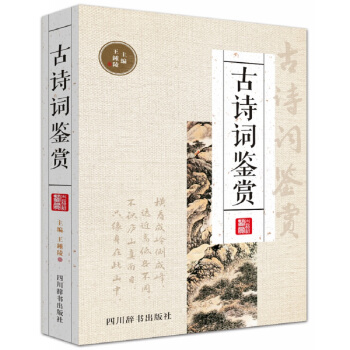
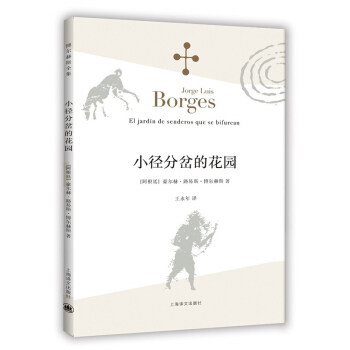
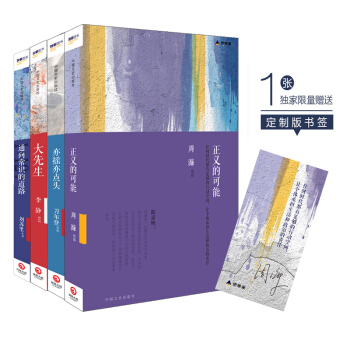
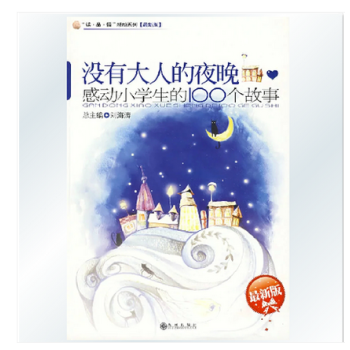
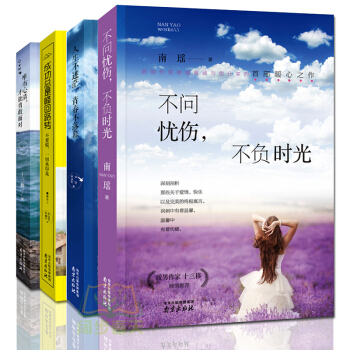
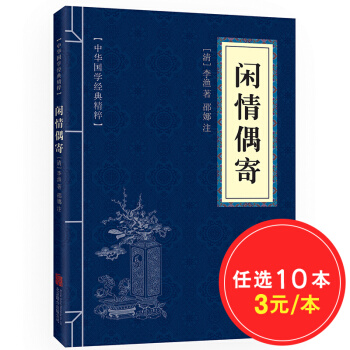
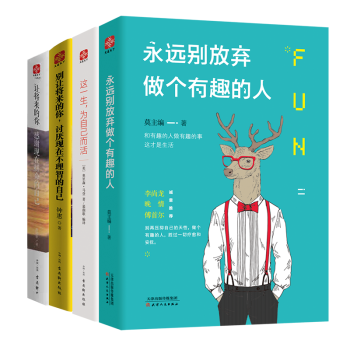
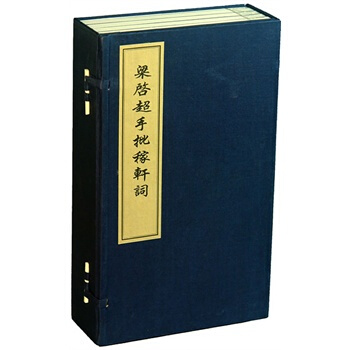
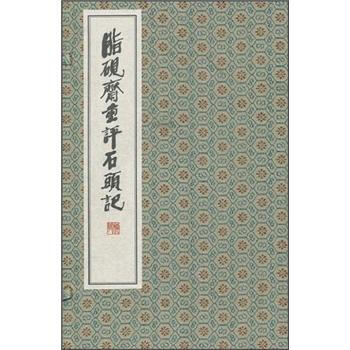
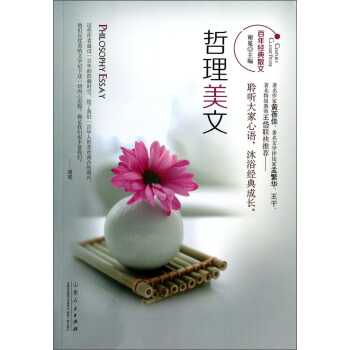
![曹文軒典藏拼音版:啞牛 [7-10歲] pdf epub mobi 電子書 下載](https://pic.windowsfront.com/11475314/59293a86N0447ca15.jpg)
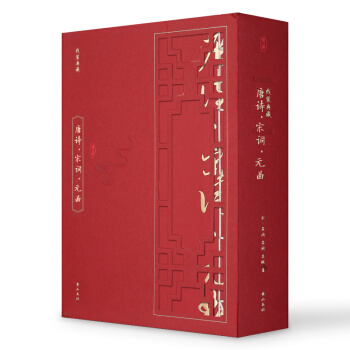
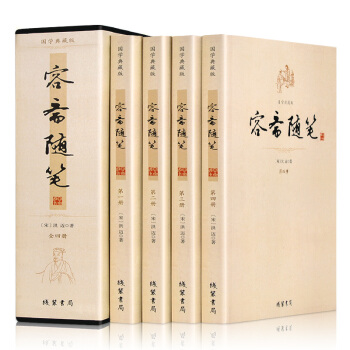
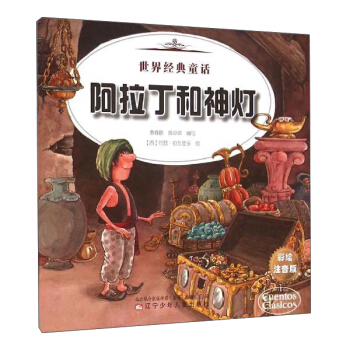
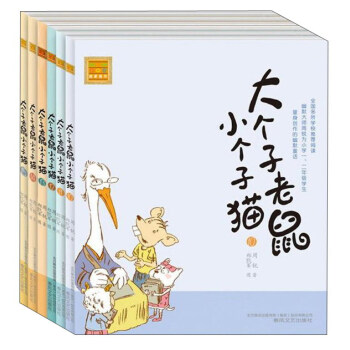
![中國兒童文學新經典:散文捲 [8-12歲] pdf epub mobi 電子書 下載](https://pic.windowsfront.com/11875339/56e13fd9N92e01ed2.jpg)
![冰心奬獲奬作傢書係:傳說有個鹿迴頭 [6-14歲] pdf epub mobi 電子書 下載](https://pic.windowsfront.com/11879636/56ce7ca1N7a6833a0.jpg)
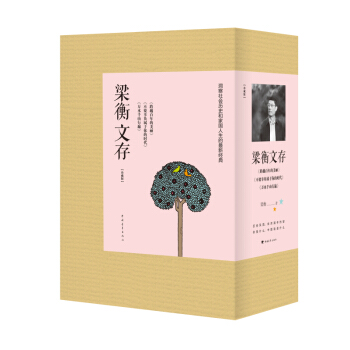
![範希衡譯文集//聖勃夫文學批評文選 [Recueil de critques litteraires de Sainte-Beuve] pdf epub mobi 電子書 下載](https://pic.windowsfront.com/12016086/57e1e7f0Nedd5e344.jpg)
![陽光姐姐伍美珍非常班級套裝全12冊 [11-14歲] pdf epub mobi 電子書 下載](https://pic.windowsfront.com/12020024/57bbffeaN1f1fb9d3.jpg)